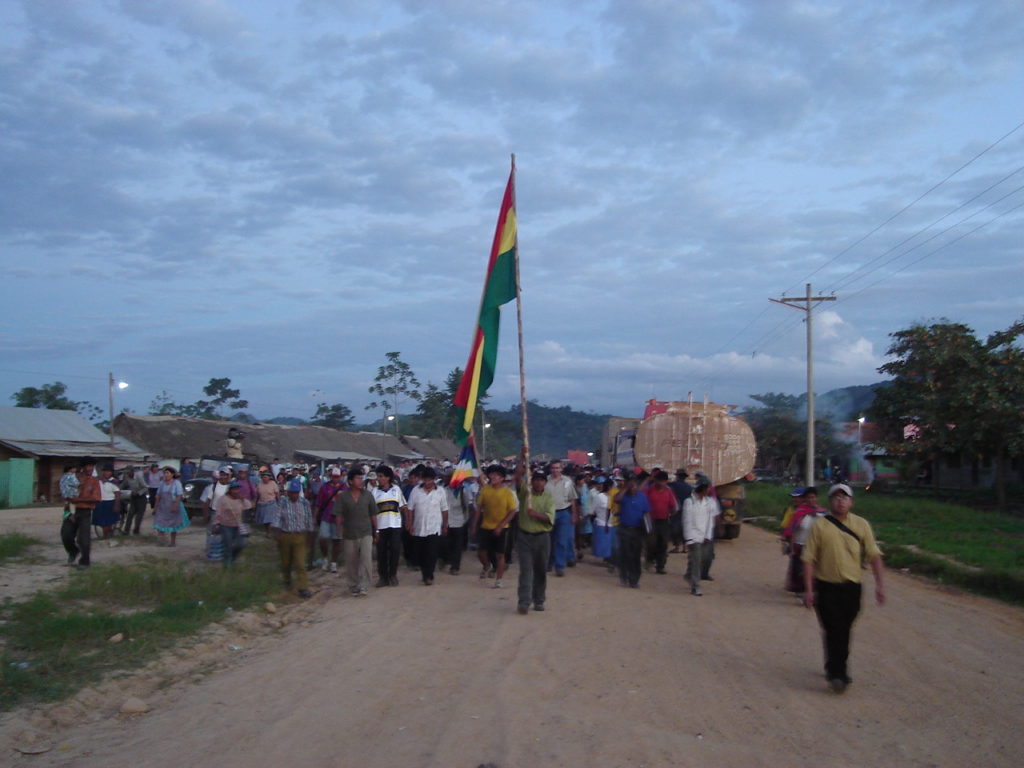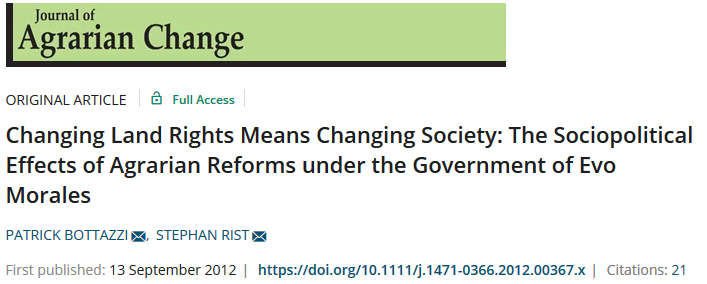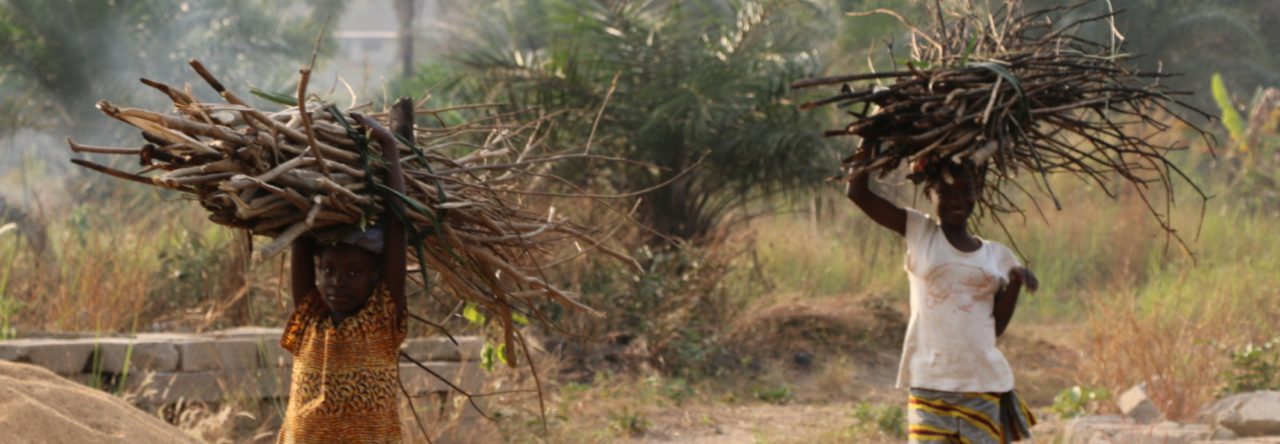
Agrarian reform cannot be limited to a linear process of land distribution. It involves a societal restructuration that affects power relations, multi‐level governance structures, the (re)spatialization of juridical legitimacy and symbolic boundaries between sociocultural groups (ethnicity). This paper analyses the consequences of the major Bolivian agrarian reforms of 1953, 1996 and 2006 for the current process of setting up the ‘plurinational’ state under the government of Evo Morales. Using a historical and sociopolitical approach, we show that the ethnically differentiated devolution of individual and collective tenure rights has resulted in an institutional segmentation along ethnic boundaries that gives rise to a growing polarization between the two socially constructed categories of indigenous people and peasants. This institutional segmentation is not limited to agrarian questions but also affects other domains, such as political processes related to territorial autonomies. The current government is trying to maintain a neutral position by giving priority to large‐scale national programmes of economic development.

Click here to see option of full paper access
![]()

Leave a Reply
You must be logged in to post a comment.